SHARE
INFO
- DATE: 18-12-2020
- PLACE: Seoul
COUNTRY OF PROVENANCE
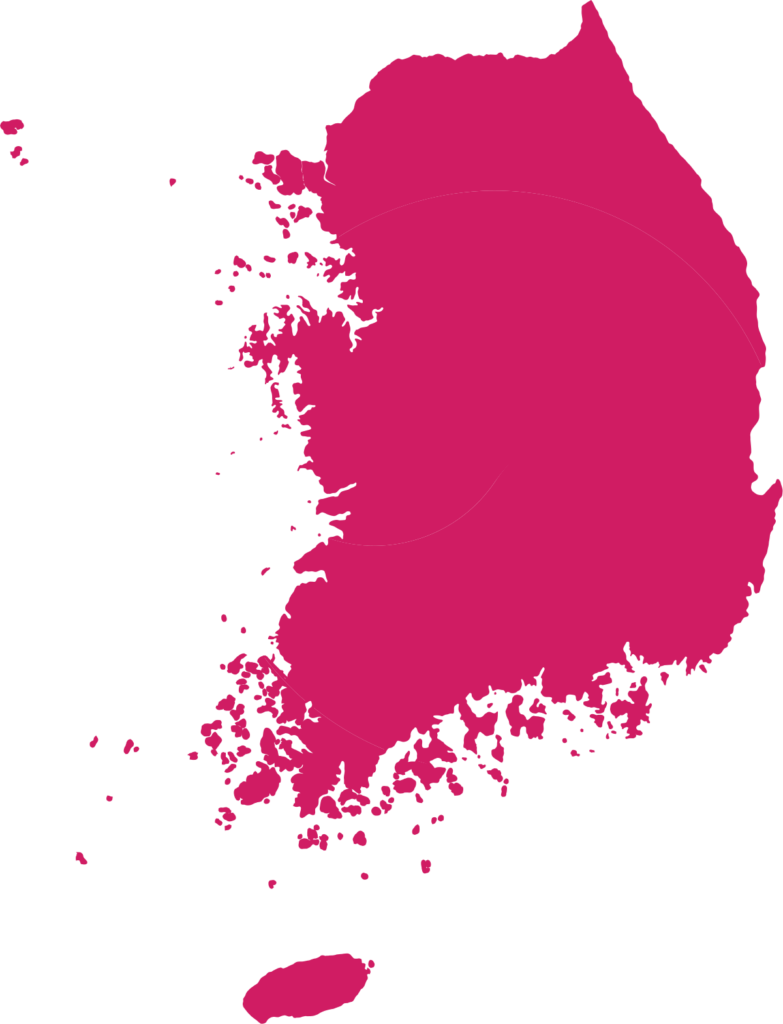
South Korea
RELATED ARTICLES

Gastronomy: a journey through the senses – Alessandra in South Korea
What it takes to make a new city a “home” is a good relationship with the culinary local culture. Alessandra, South Korea
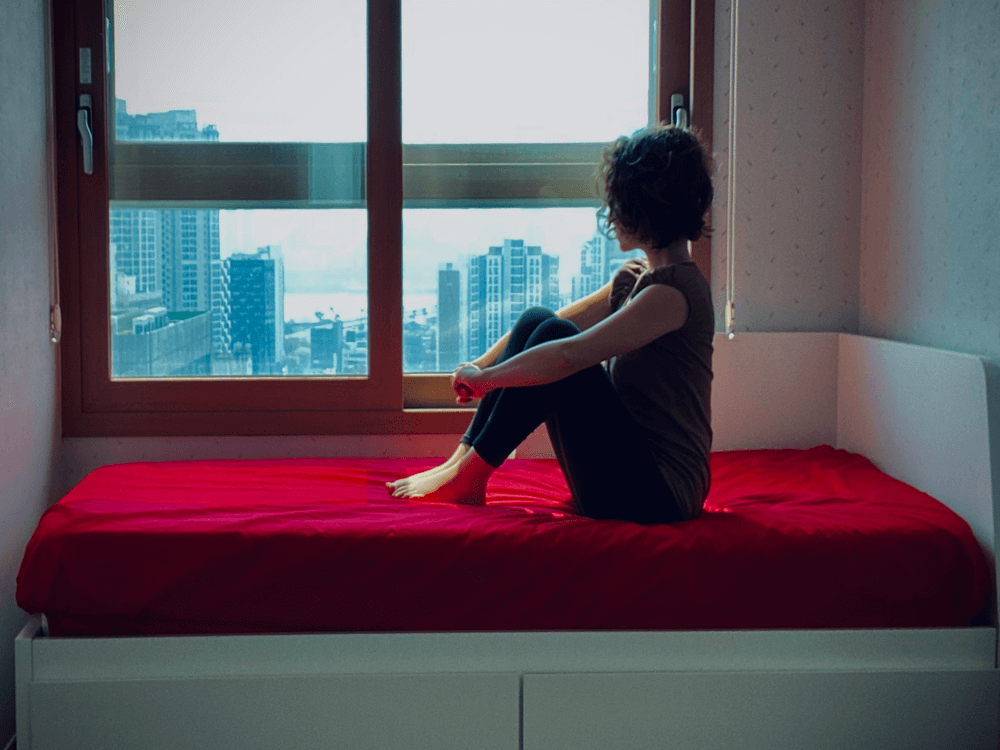
The girl on the 22nd floor – Alessandra in South Korea
I’ve always lived on the second or third floor of low-rise buildings. From the twenty-second floor, what is far away is much sharper. Alessandra, South Korea
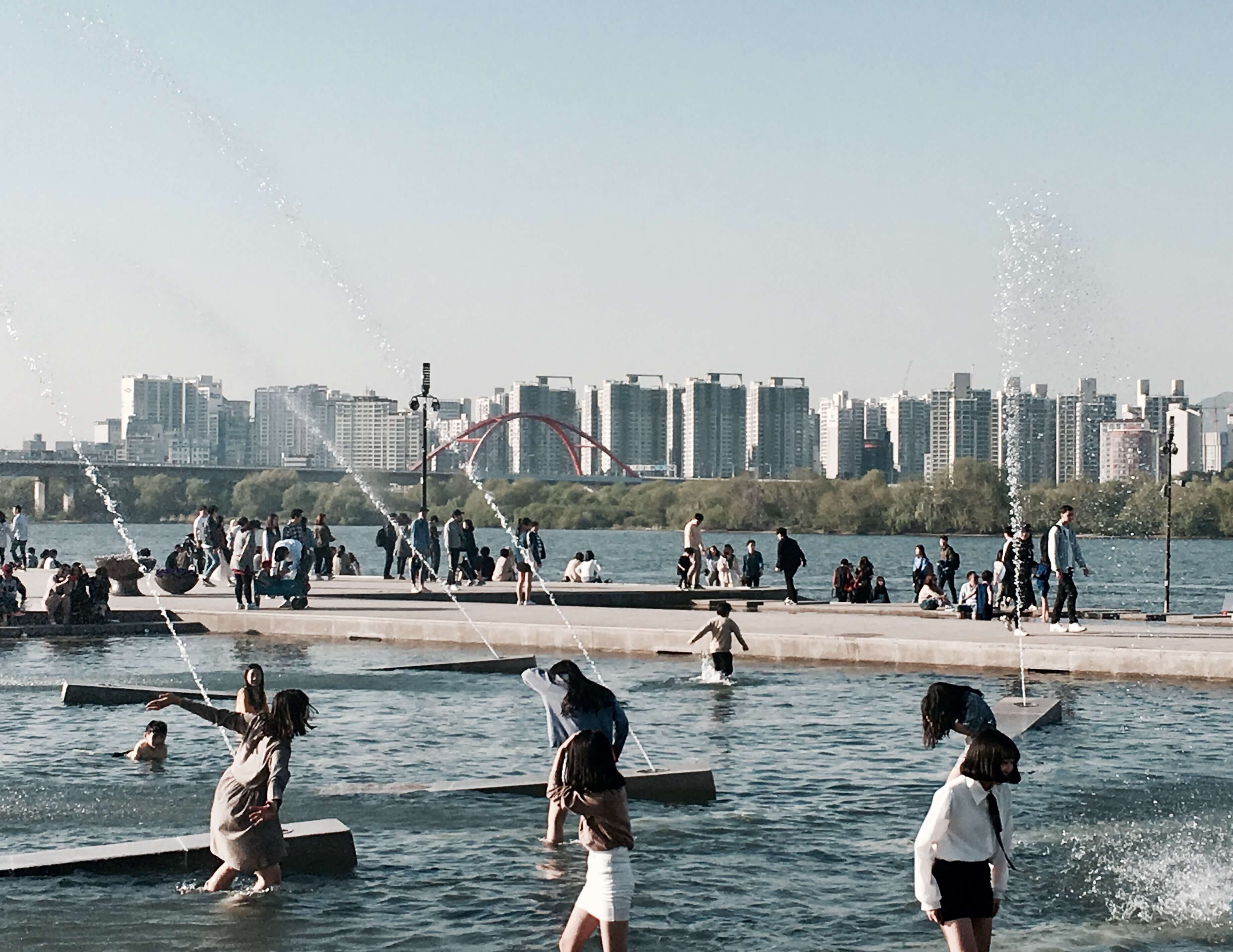
My Tips – Seoul, South Korea
Seoul is a city to live rather than visit. Choose carefully where to go during the day and in the evening. What to see – my Tips – Seoul, South Korea
South Korean curiosities: appaerance speaks
Alessandra from Seoul, South Korea
A beating heart
The apparently striking contrast between tradition and futurism has become over time a new form of identity, the one of which Koreans have been plundered during the many wars that took place on the peninsula. As a result, Seoul is a huge beating heart, its districts reveal various faces and souls. In some cases the outlines are so clear and sharp that the inhabitants tend to identify themselves with their neighborhood, they are at the same time influencers and followers.
“I live here ergo this is me”
One day, returning home after dinner, I crossed a couple in fleece pajamas and duvets going out from the building. In particular, by “fleece pajamas” I don’t mean an ugly, but sober pajama. No, in Korea the “fleece pajamas” have bright colors, scattered and clearly visible childish motifs. Of course, in that very moment my open minded side beat me up before I could elaborate any comment. Indeed, the concepts of normality and strangeness are subjective and interchangeable when moving along meridians and parallels! Right? Evidently, in Seoul in the late evening it happens to meet young people wrapped in their pajamas – fleece or cotton according to the seasons – in the small neighborhood supermarkets or along the park near the house with an American coffee in between their hands. As a matter of fact, what in our eyes is an oddity, could instead be interpreted as a way to cope with alienation of the megalopoly. Probably inspired from American TV series and the relaxed look of midweek evenings, in my opinion it is a way of saying “I live here”, but also “I am this neighborhood”.
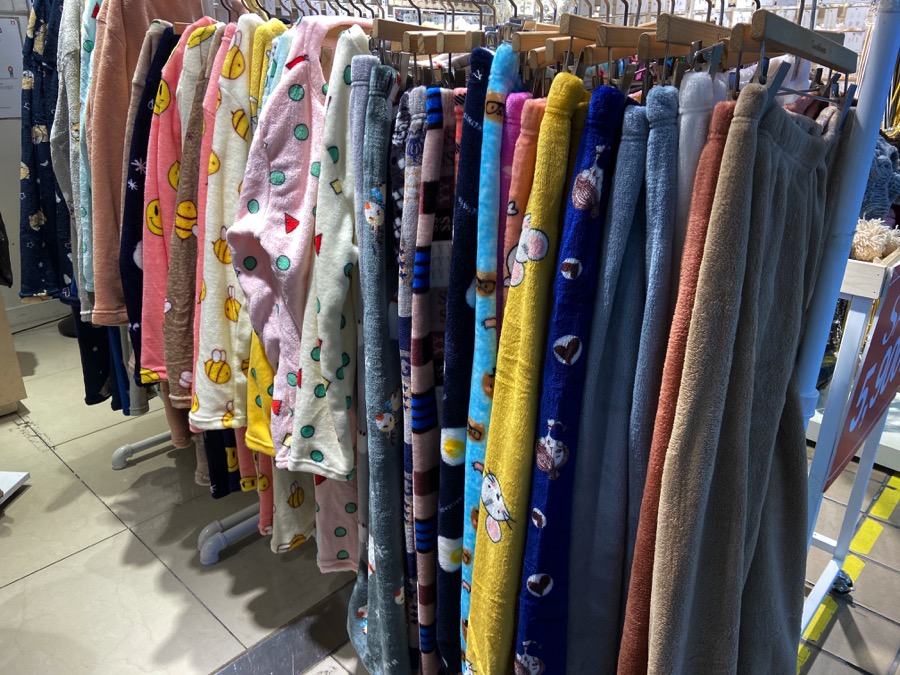
Discovering the new normal
The first encounter with outdoor pajamas triggered my curiosity in search of elements that are absolutely common in Korea, but particular to the European eye. In one of the previous posts I talked about how the knowledge of local culinary traditions is one of the first steps for integration into a new country. In addition, the discovery of habits allows advancing in the process! Surely, behind every normality / strangeness there is a historical origin or a triggering event; for this reason, observing, raising questions and going deeper in the research of answers open the doors to knowledge, understanding and, therefore, integration.
Never stop at the first impression
The first example that comes to my mind is the following. I was on the subway to work and a couple sat in front of me. As revealed by the picture below she had a curler on her head. Because of it, I titled this photo “Adopting punk solutions to survive the straight (hair)”. In my view, it was unusual, but probably a personal choice of the girl. Mistake! Indeed, from that moment on, episodes of that type multiplied and I was forced to put my judgment aside and ask myself a few questions about the origin of the habit.
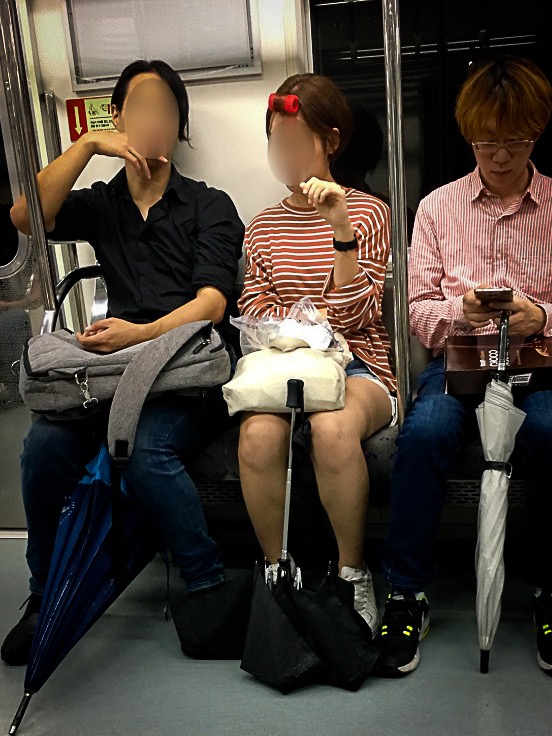
A curler that makes history
What I found was totally unexpected. In 2017, the judge in charge of the impeachment of President Park showed up in the Constitutional Court – for one of the most important trials in recent South Korean history – with two curlers on her head. Of course, the image in a super interconnected society went viral. As a consequence, Judge Lee Jung-mi has become the symbol of the hardworking and committed woman, of revenge against a society in which woman’s first mission was to be neat and beautiful, simply looking perfect. On the whole, this episode triggered a moment of important reflection on the role of working women in Asia and the curler has turned into a symbol of emancipation. Example of how history creates new habits and normality.
Click for additional information
Couple look
The aspect of Korean culture that uses appearances that speak is also recognizable in the “couple look”. For instance, shortly after my arrival, in a shopping center I remember my attention being attracted by two mannequins, hand in hand, with matching outfits. Initially, I thought of a promotional message from the store. Mistake! Undoubtedly, the concept of the “couple look” is an integral part of Korean society. Indeed, appearance here becomes a tool to affirm the status as a couple, or to feel close to each other in the case of long-distance relationships. Furthermore, being single in Korea is not traditionally well accepted, while the romantic relationship is something to aspire to and triumph to flaunt. Although society is changing, convinced singles and unmarried couples are growing in number, it is still quite common to identify single status with the image of loneliness and unhappiness.
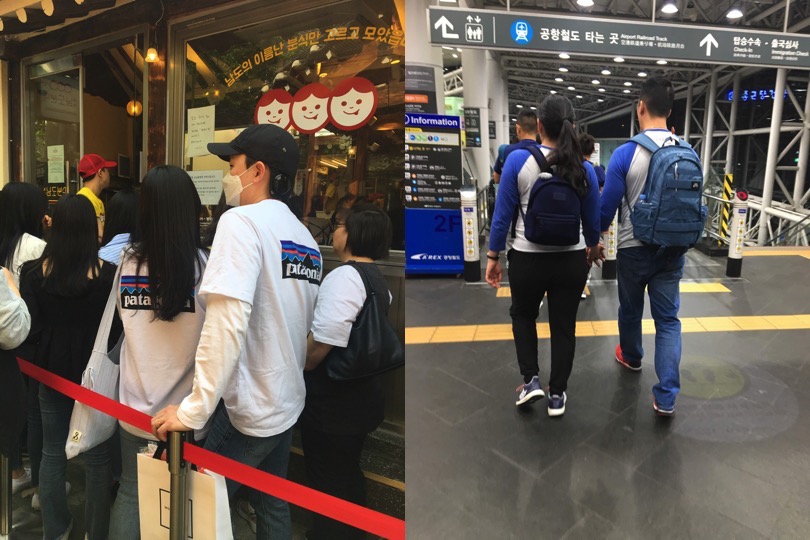
©Elisabetta Giromini
Different fashions, one message
Notably, six years of secondary education in uniform and about two of compulsory military service contribute to make matching outfit as something usual. But where does it originate from? Apparently, it is an evolution of the so-called “honeymoon outfit”. Initially represented by the traditional hanbok for women and a suit for men, it has been replaced a few decades ago by modern clothes and matching travel accessories, as a confirmation of the achieved milestone: the marriage! To sum up: fashion changes but the message remains.
Click for additional information
Interested in other Korean curiosities? Do not miss the next post
You can check out my pictures on flickr here.
